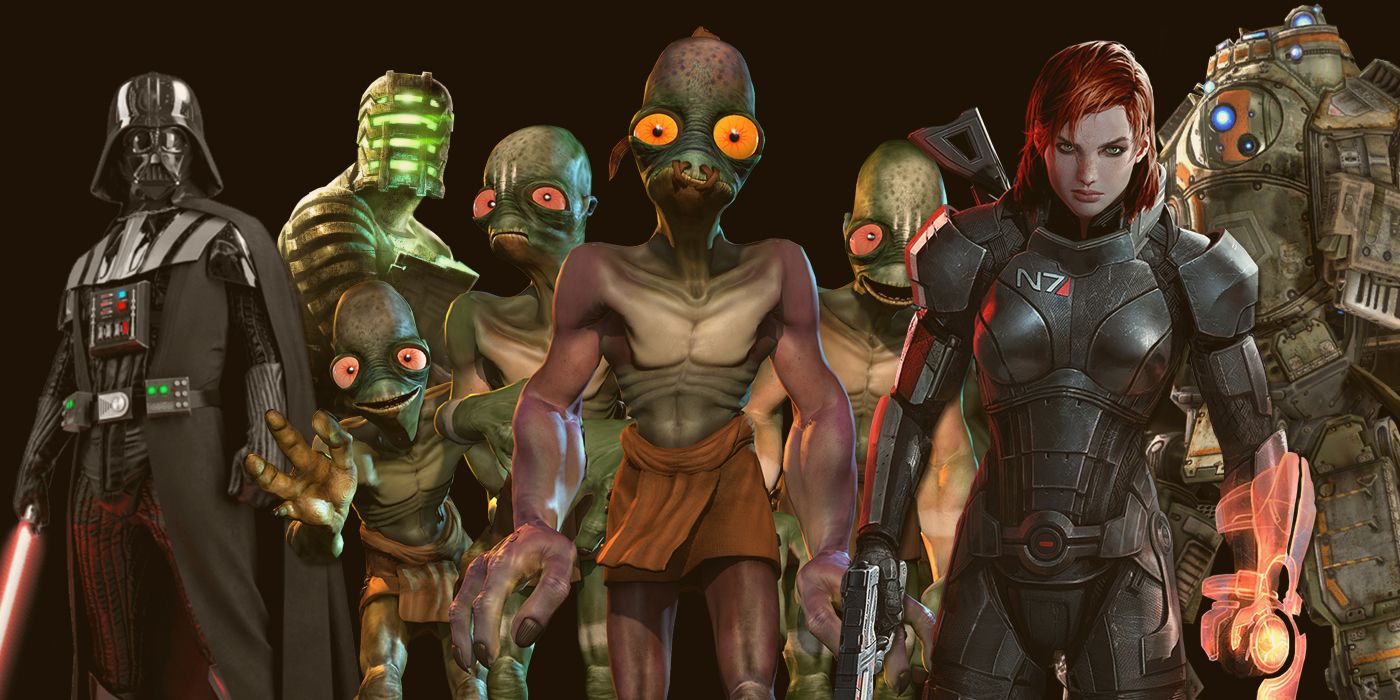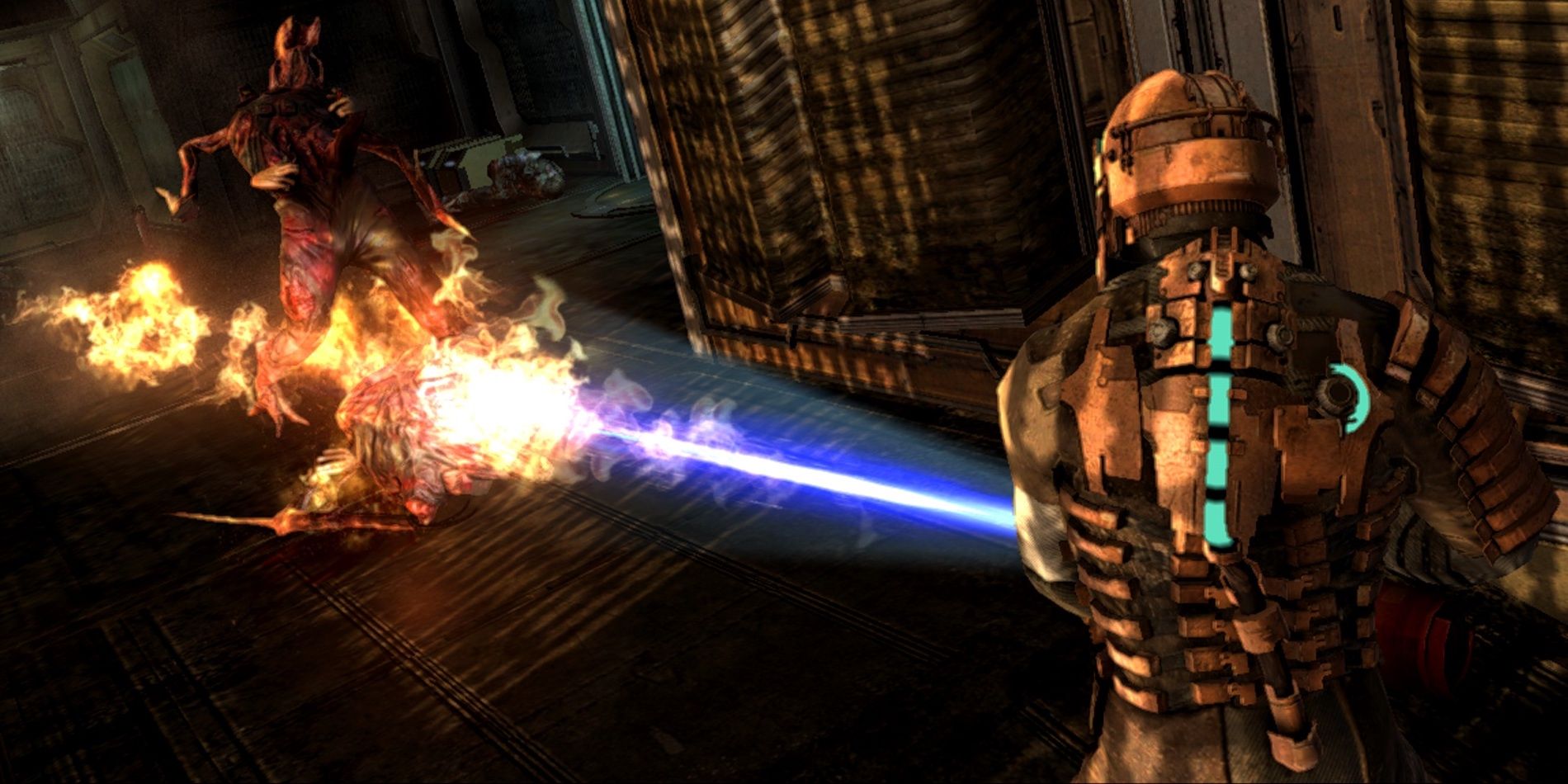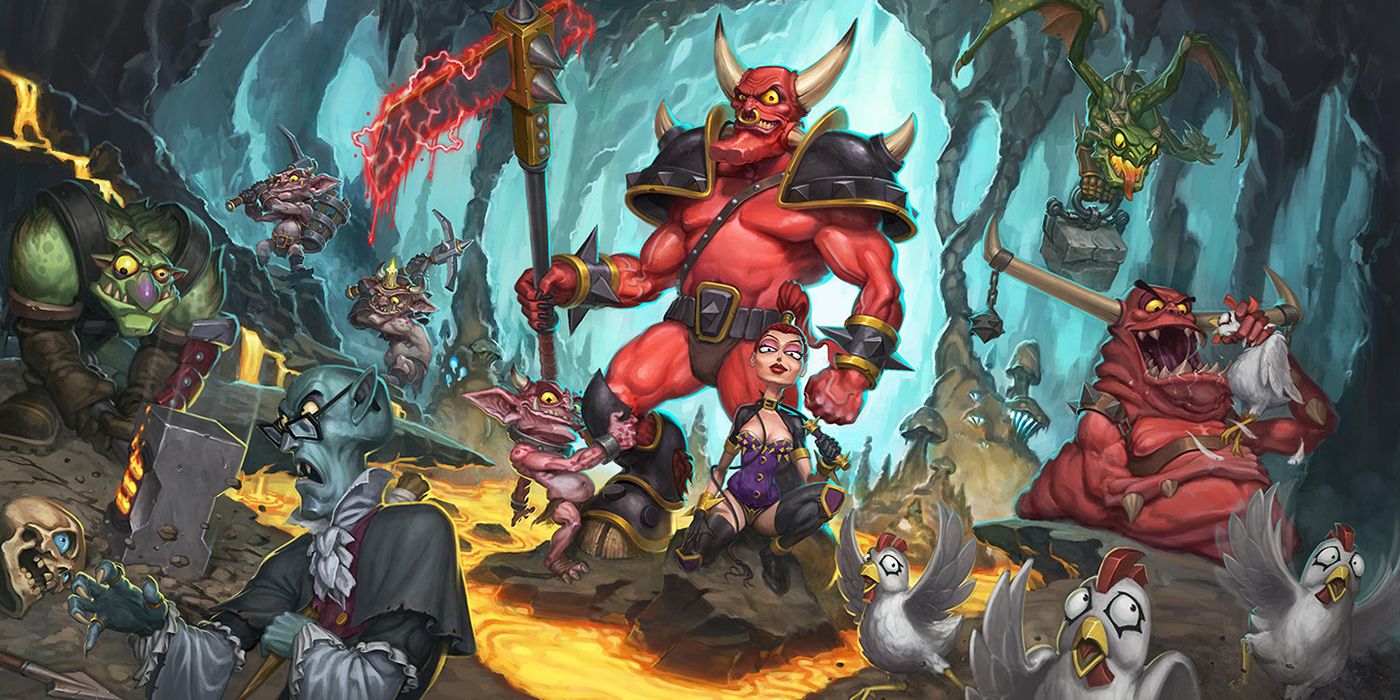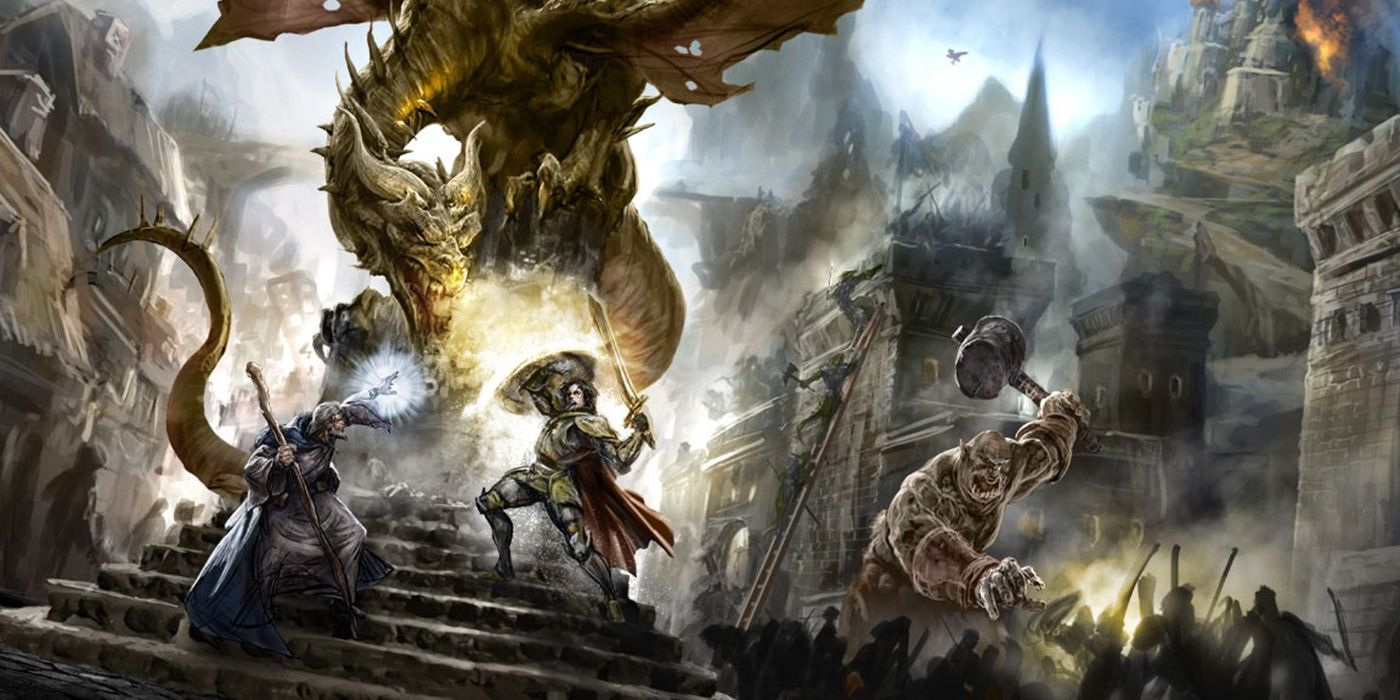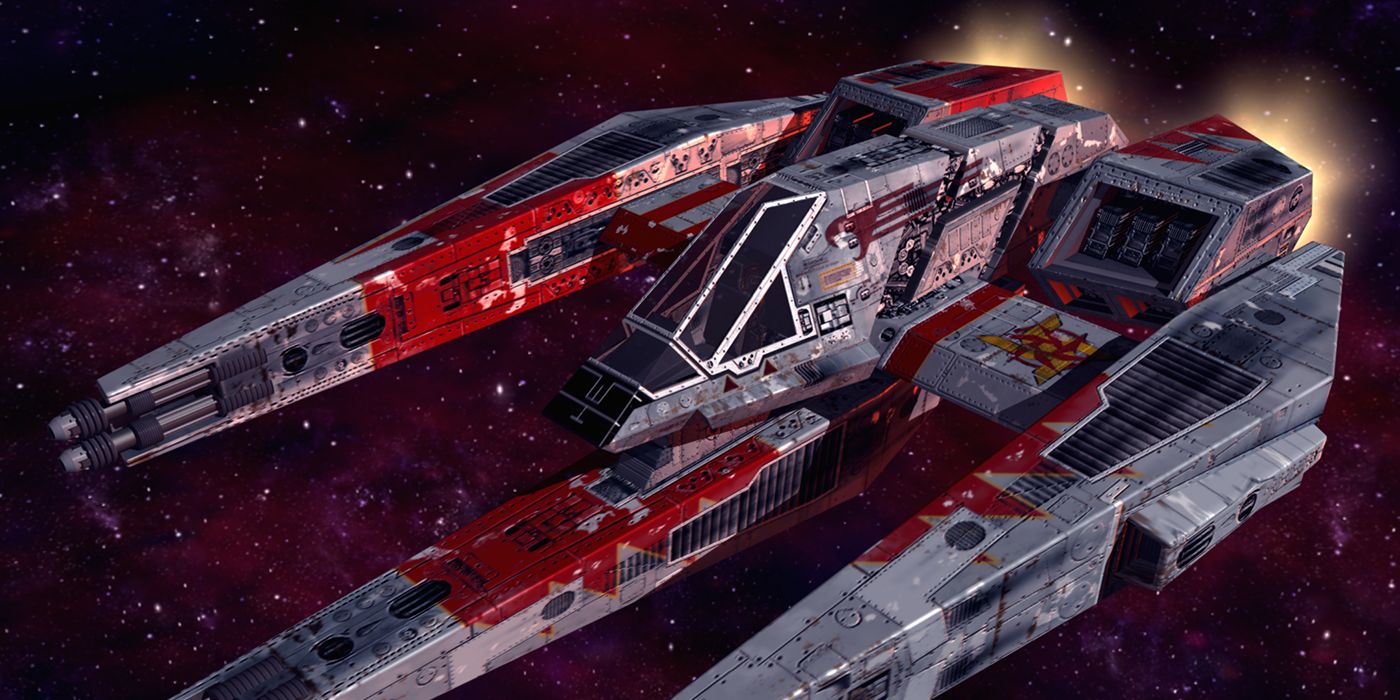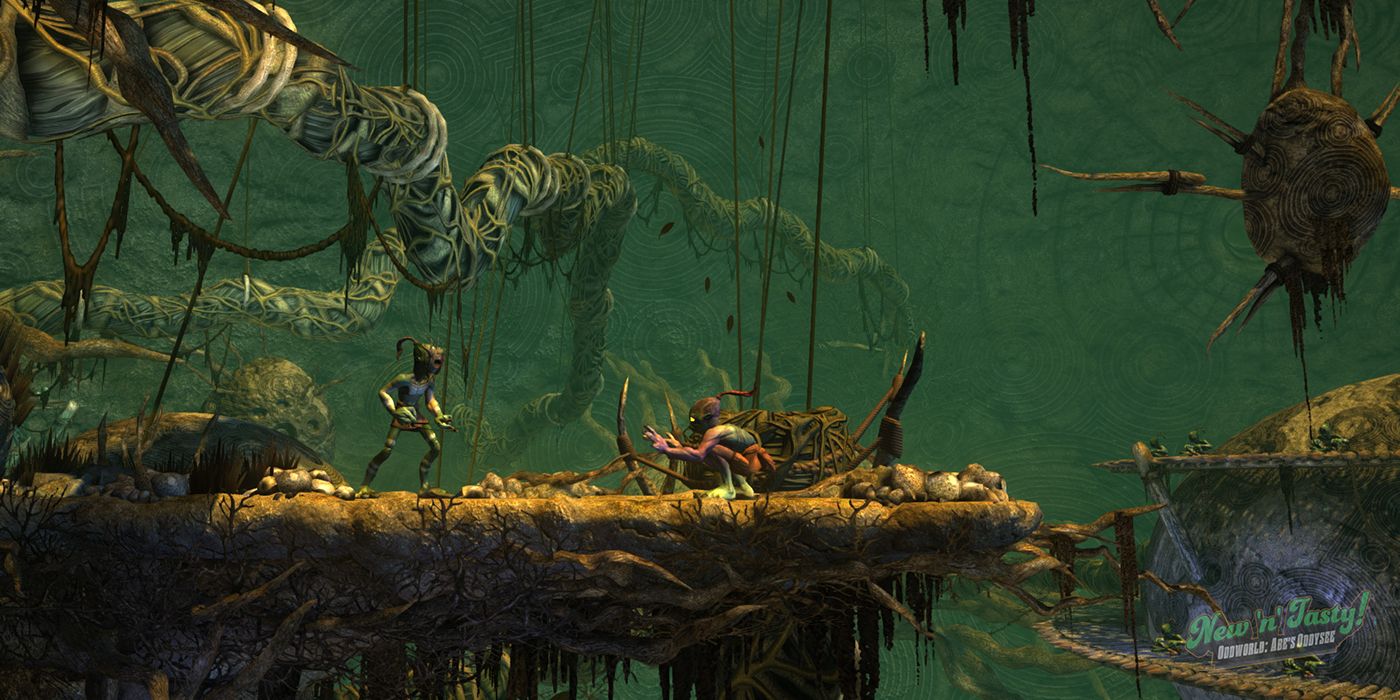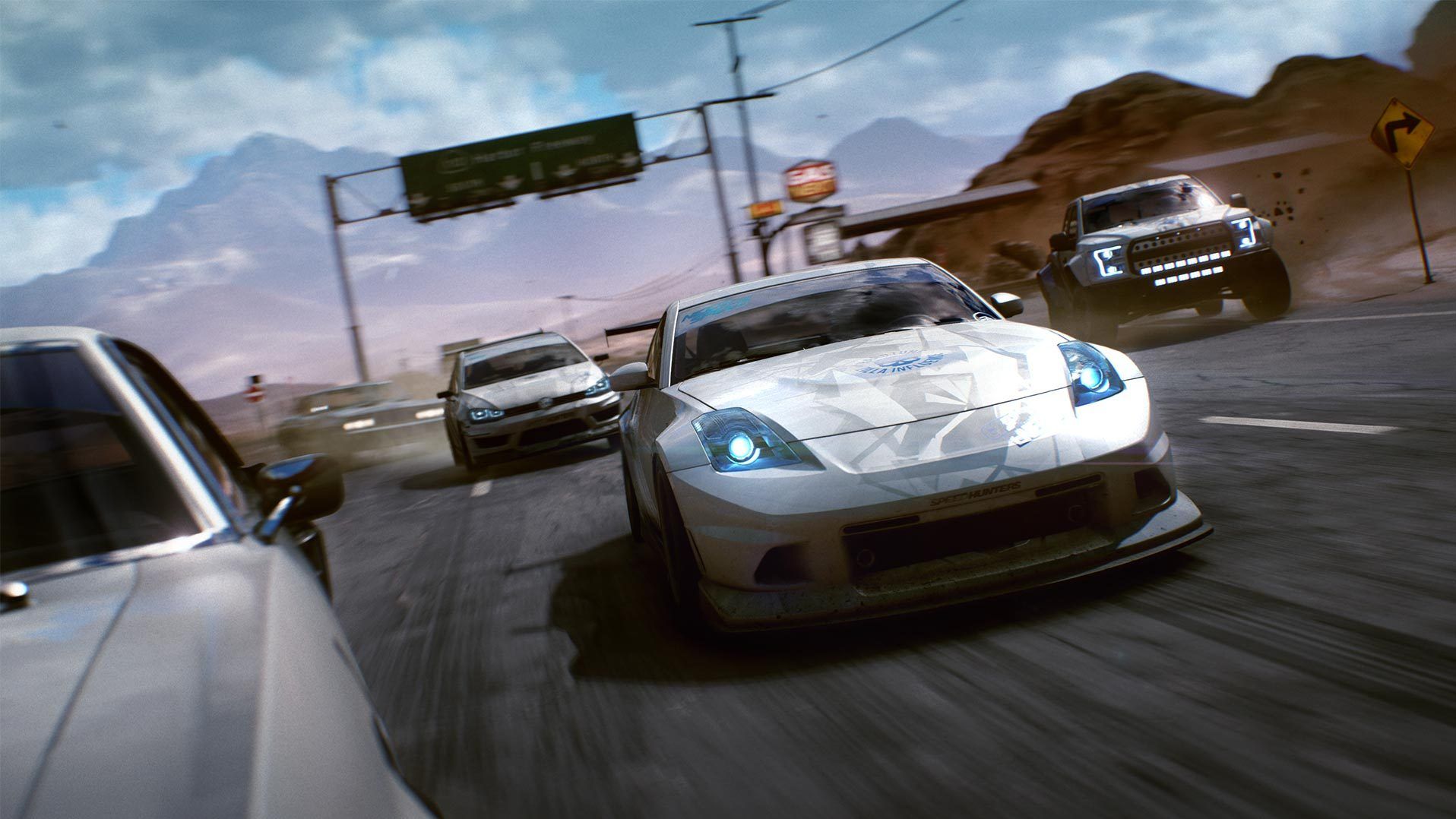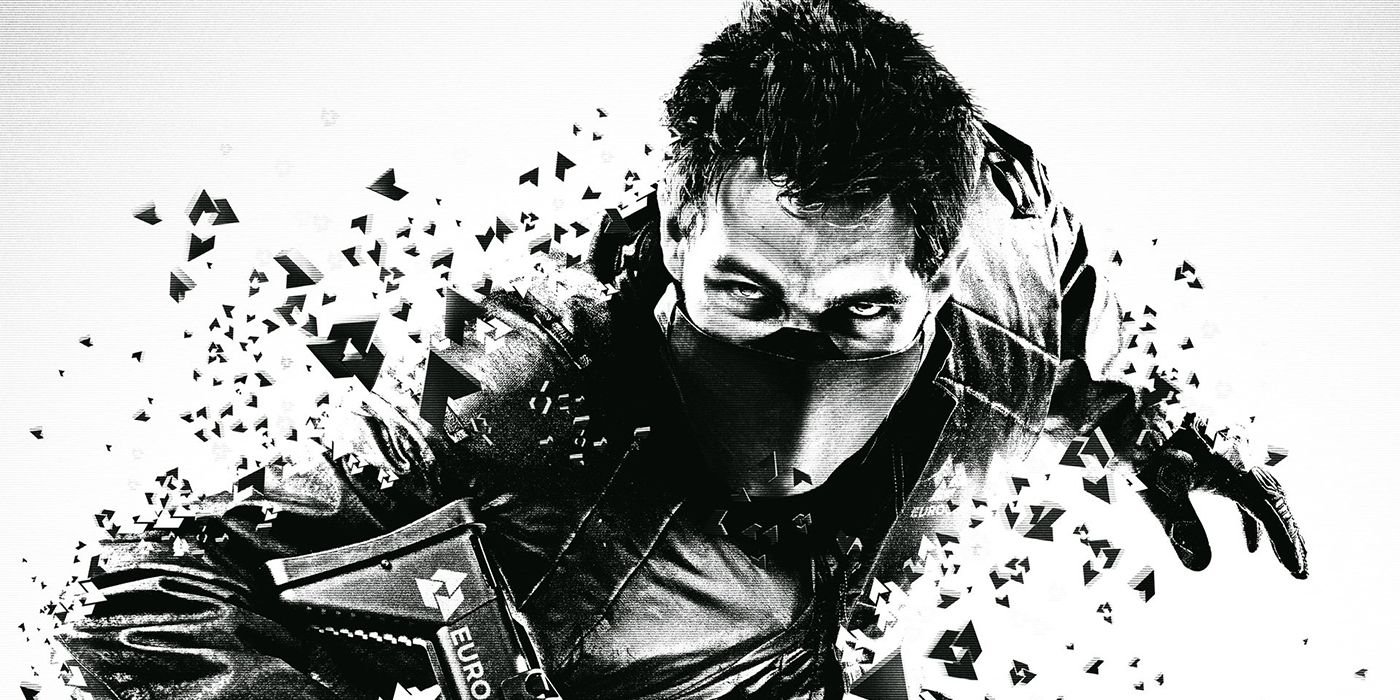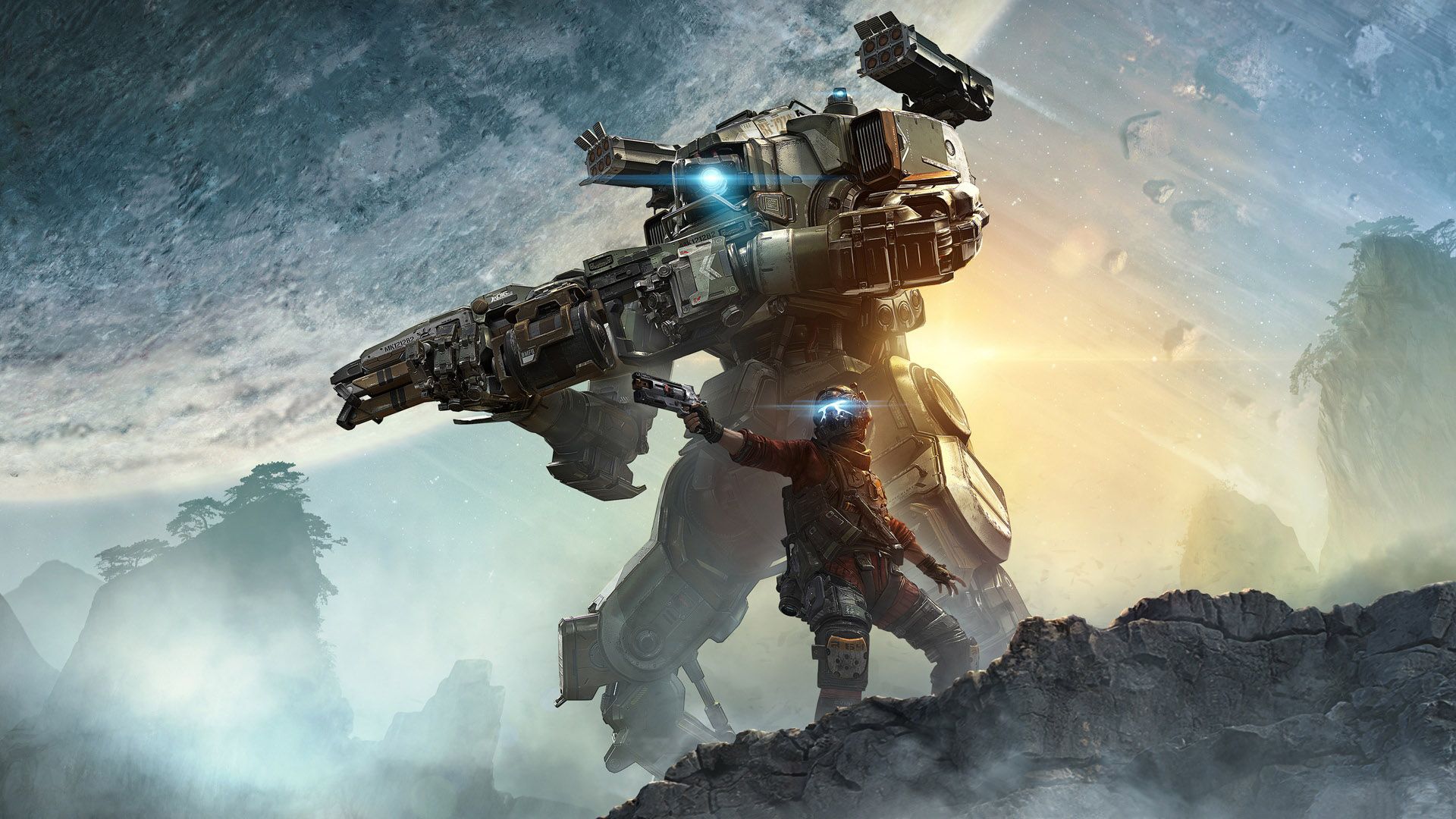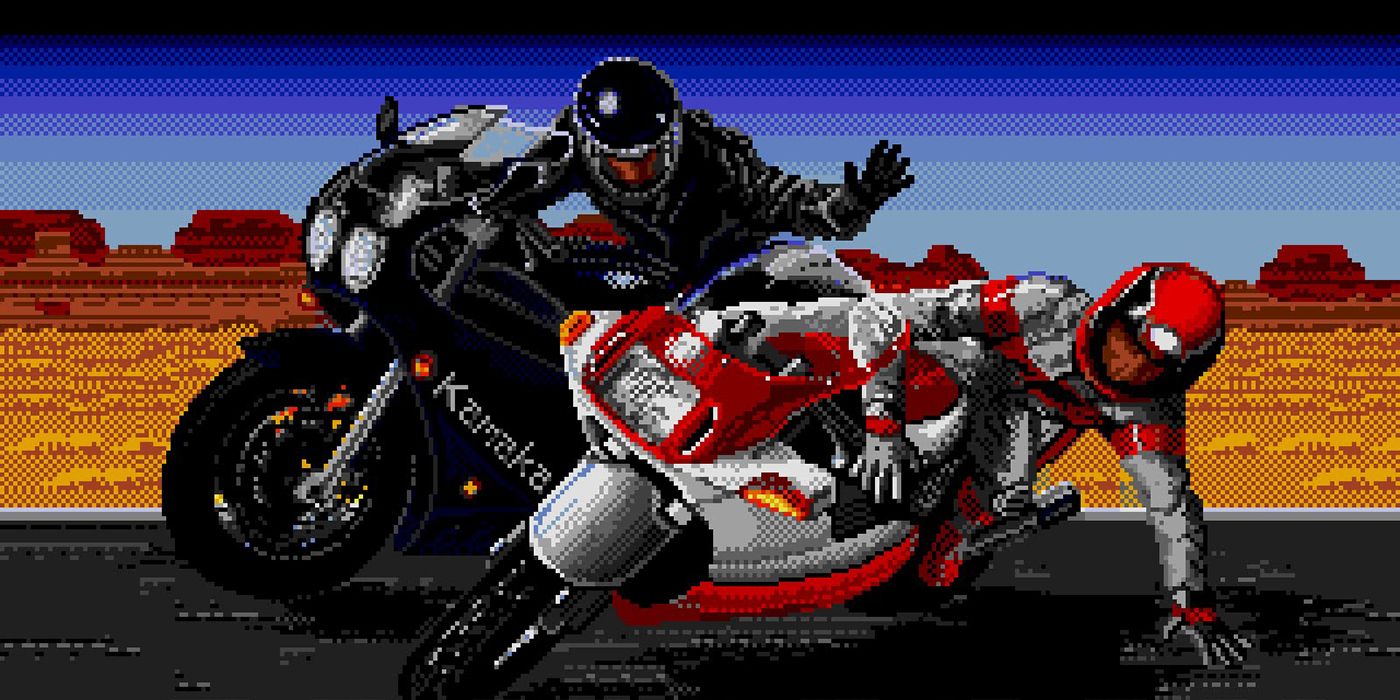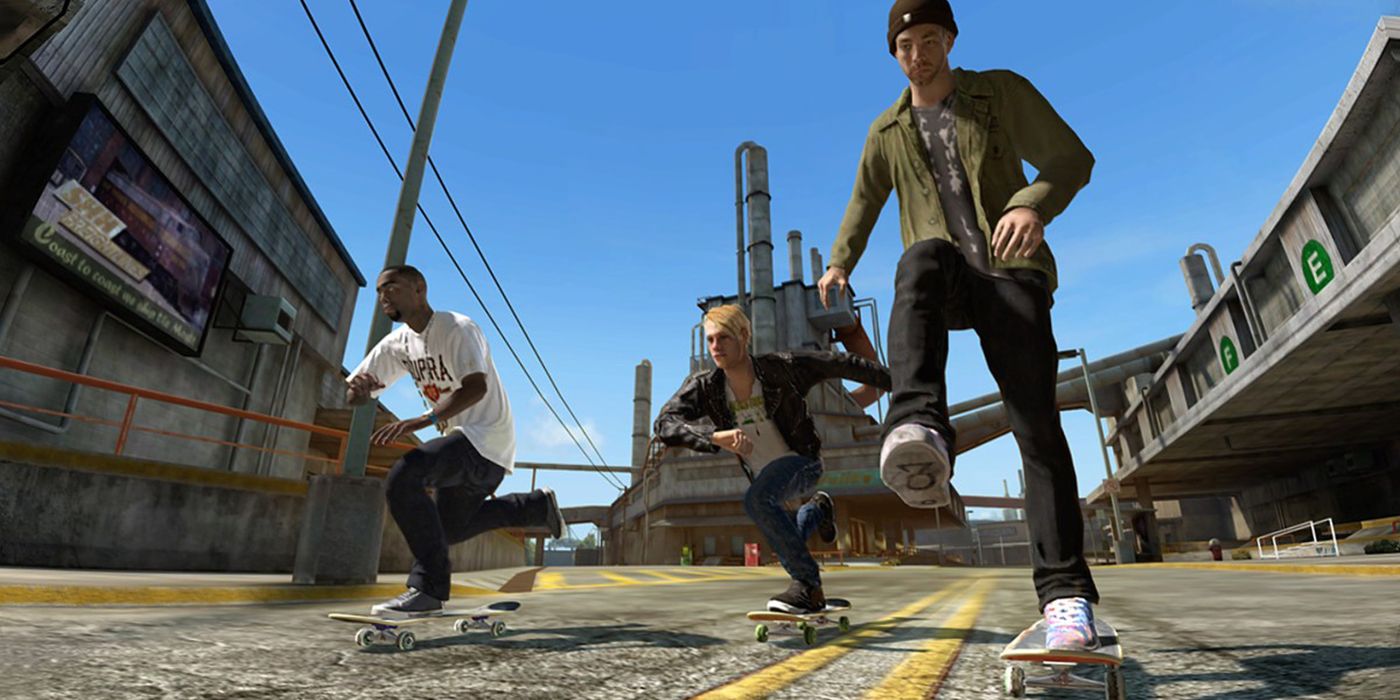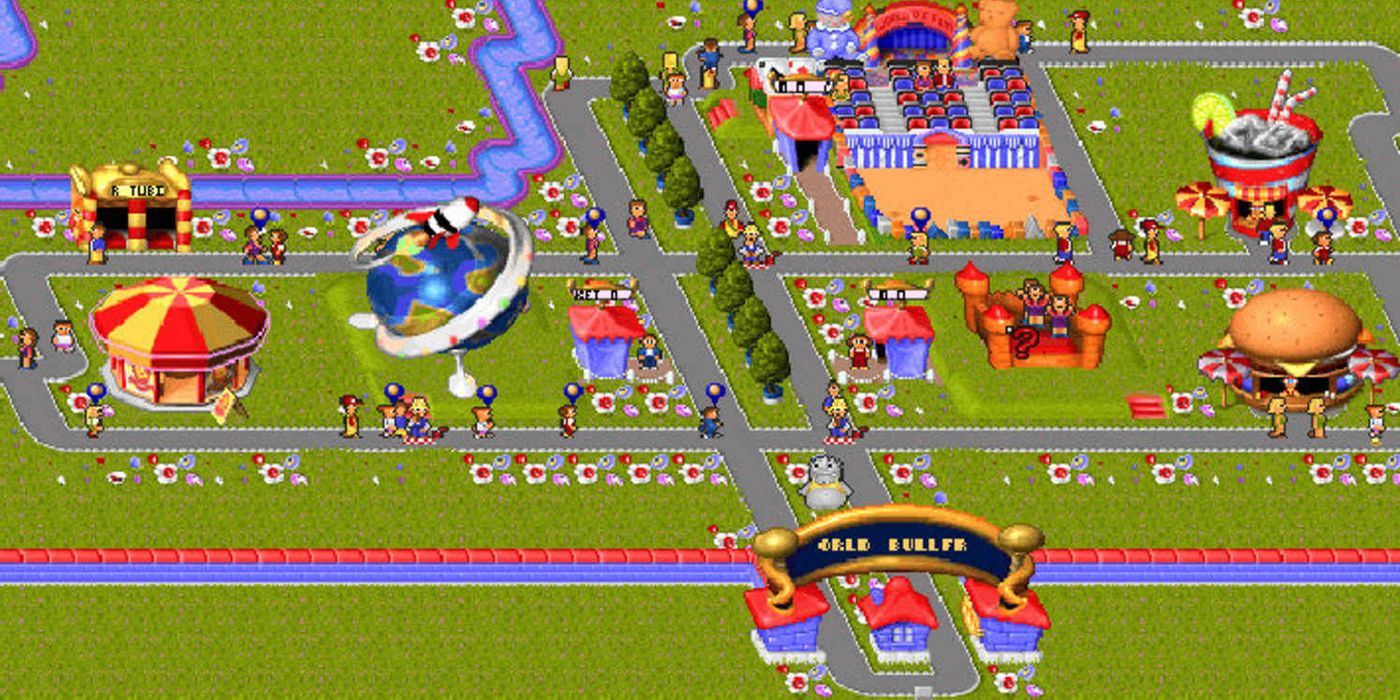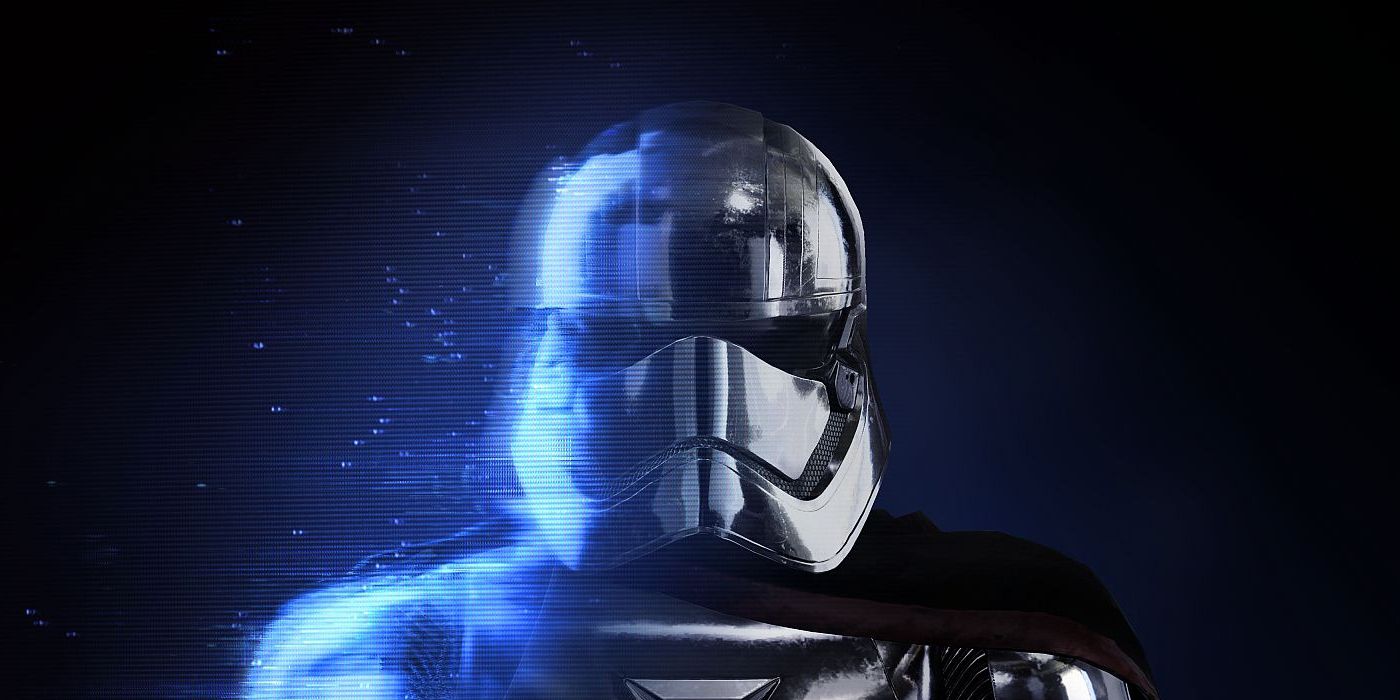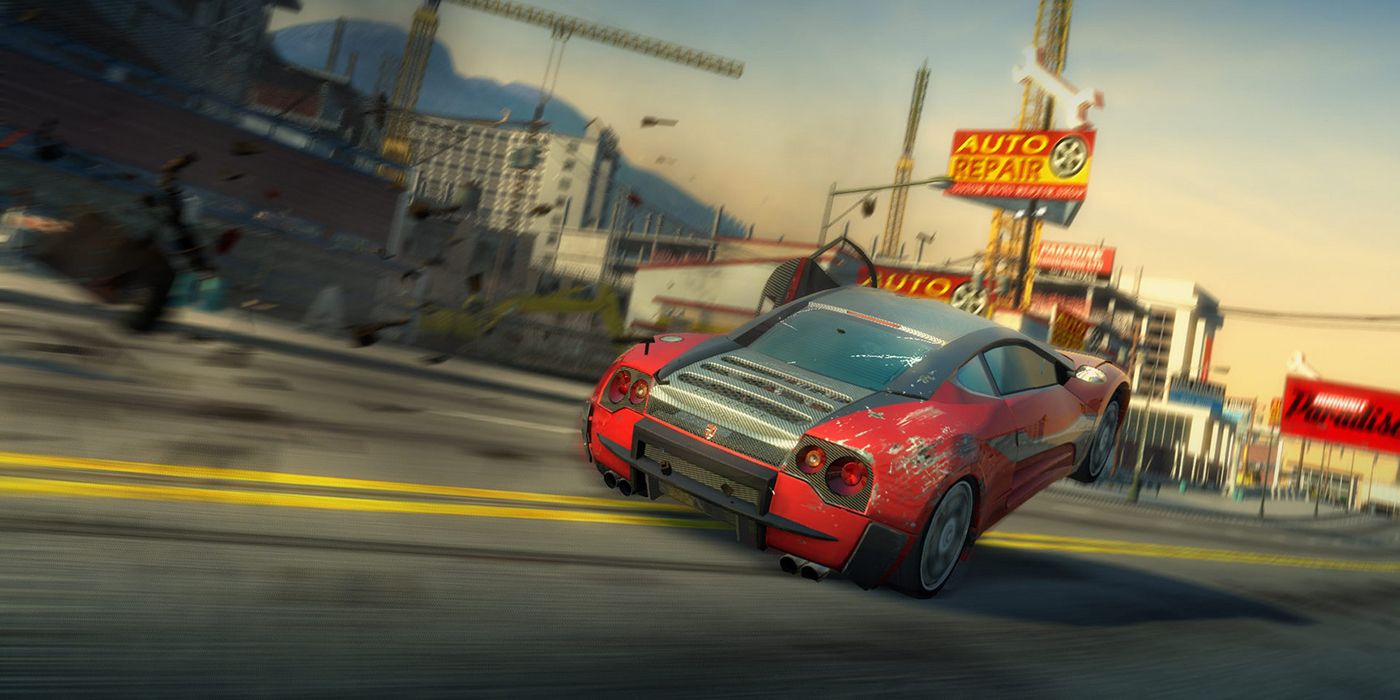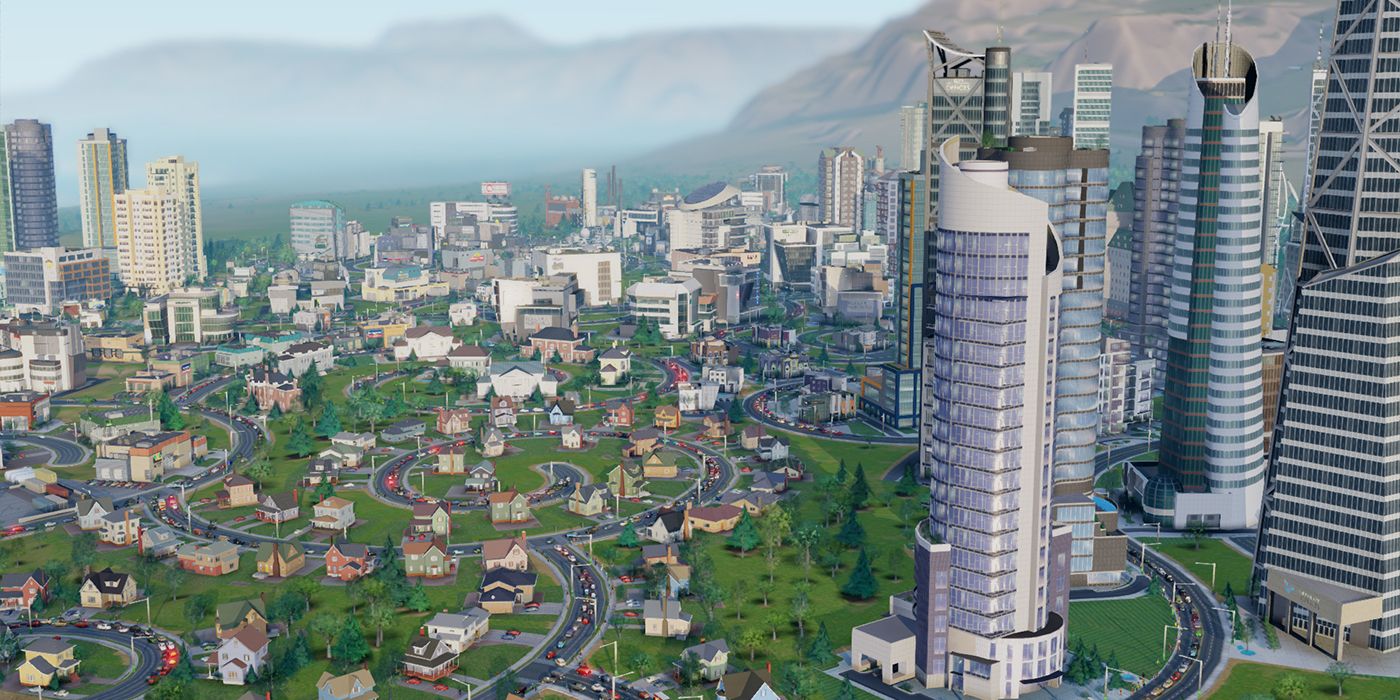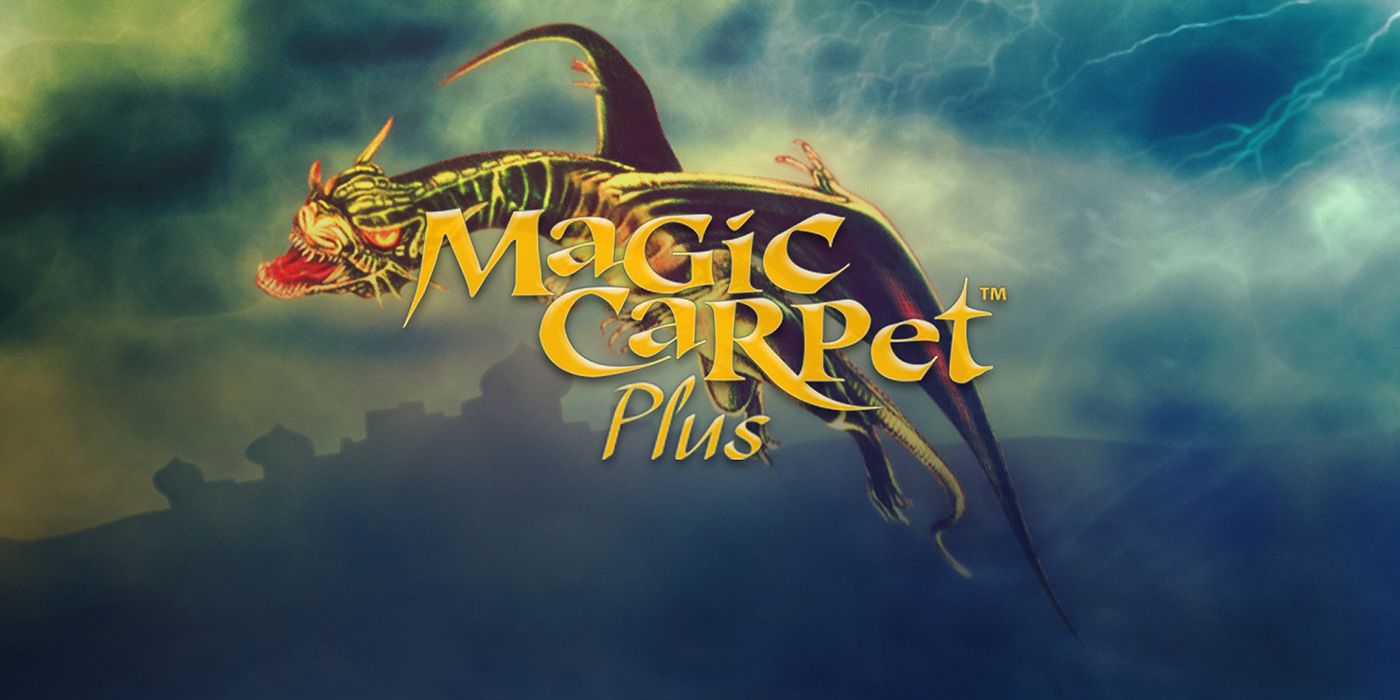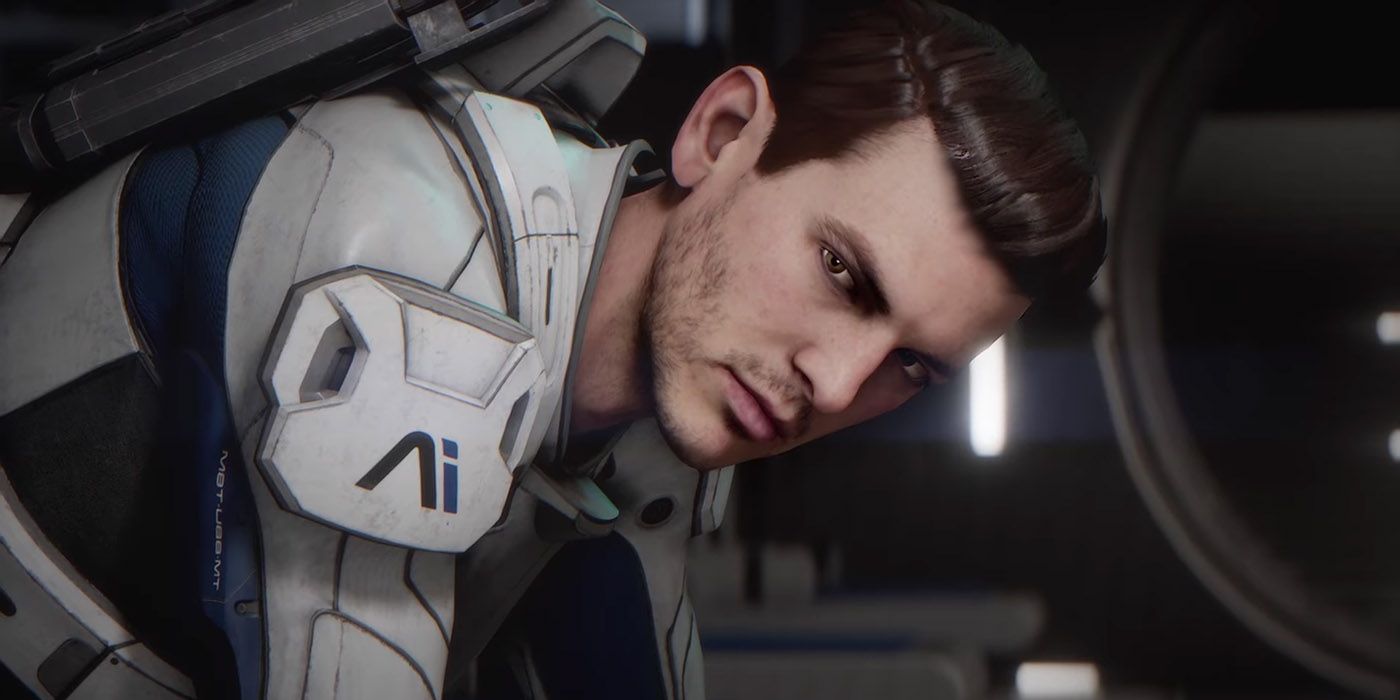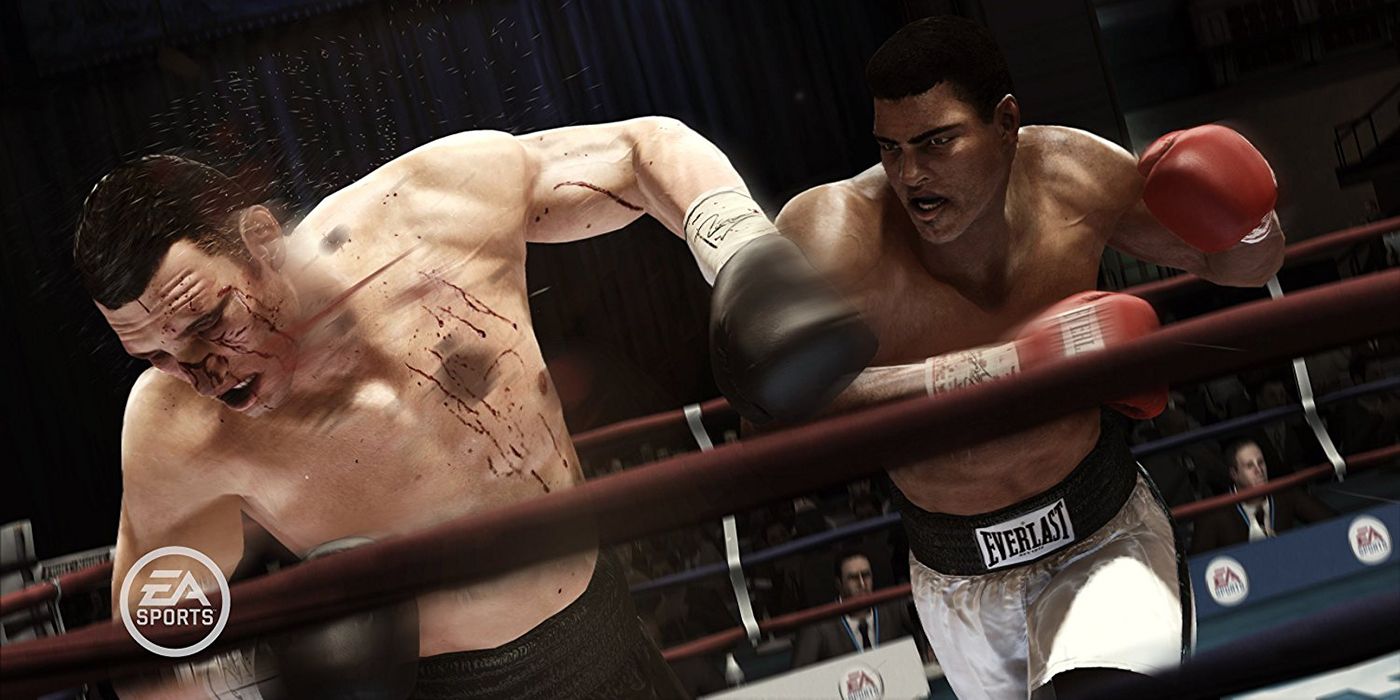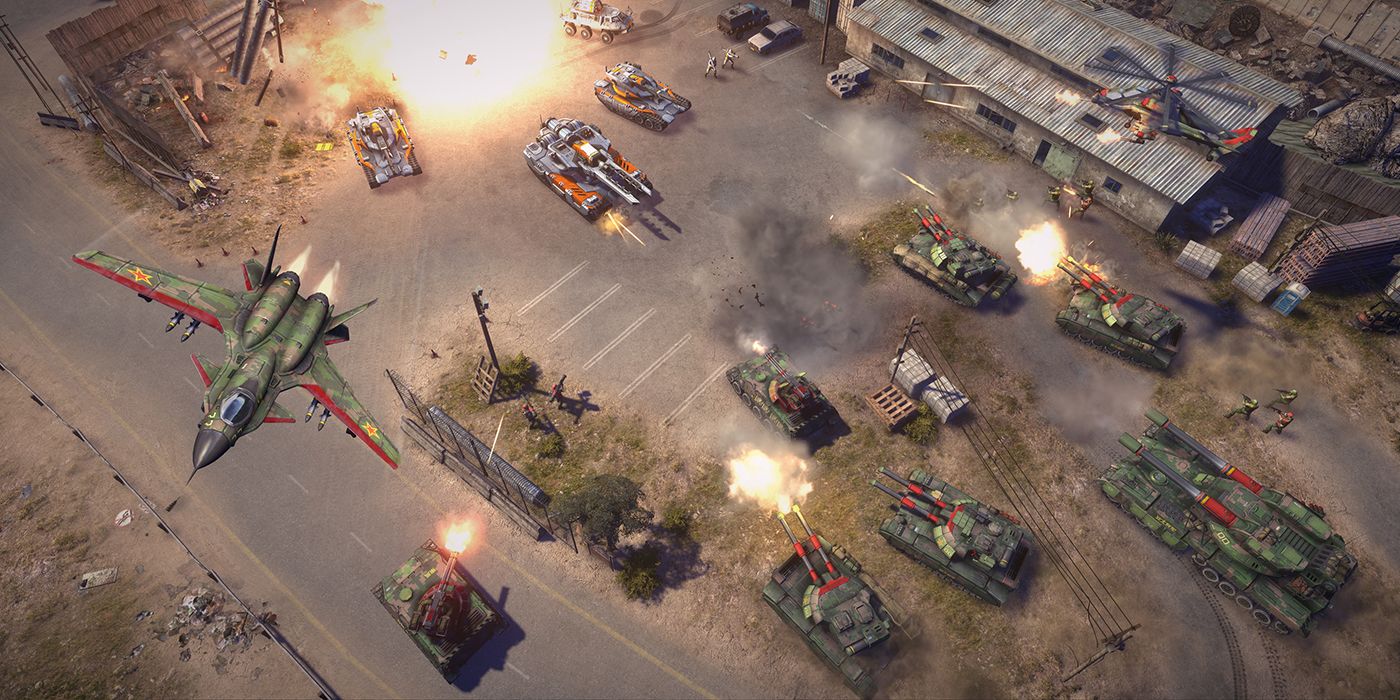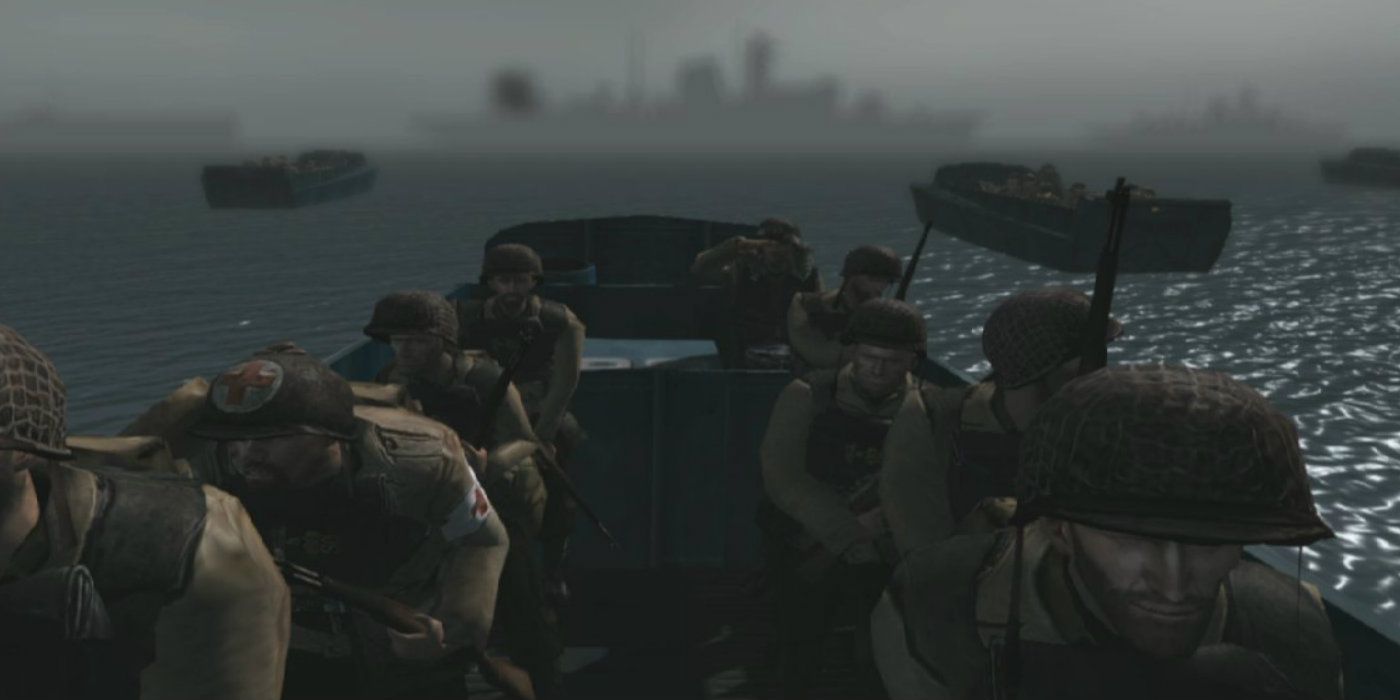Sometimes, video games fail. It's part of the nature of the industry, and even well-loved franchises can eventually fall into a state of disrepair, regardless of their previous successes. No matter how great a series is, one misstep can cause chaos.However, it seems as though Electronic Arts is a publisher with a trend for damaging the beloved video game franchises that it holds under its library. Indeed, the history of EA as a whole is littered with the shipwrecks of some of the greatest titles seen in the history of video games, whether through outright destruction or by turning the series into shells of what they once were. Even franchises such as Star Wars are not able to escape publisher interference and eventual cancellation.Related: The 20 Most Disappointing Video Games of 2017As such, it's worth remembering some of the intellectual properties that have never been the same after some direct involvement from EA. Here's a rundown of the franchises that EA has ruined.This Page: Dead Space, Dungeon Keeper, Ultima, Wing Commander
Dead Space
Dead Space is one of the more recent additions to the EA graveyard. The sci-fi horror series was one of the most iconic of the last console generation, with the first title in particular bringing out genuine scares through grotesque body horror and the isolation of space. Unfortunately, it wasn't long before EA turned its attention to the financial returns of the Visceral series, with the niche genre of the horror game seen as a reason for the series failing to hit targets.
Off the back of this, Dead Space started to shift. The smaller changes in Dead Space 2, such as a slightly higher action focus and a larger emphasis on character dynamics, eventually morphed into a full-on action adventure experience in Dead Space 3. That change, along with the confusing addition of microtransactions for upgrades in a single player game, left a bitter taste in the mouths of players, and in spite of solid sales the franchise yet again failed to meet EA's lofty expectations.
As such, Dead Space was put into cryostasis, and Visceral was moved onto the underwhelming Battlefield: Hardline. Before too long, Visceral itself would be gone, as the studio was shuttered in the wake of EA deciding to move its single player Star Wars game into more of a Destiny-style experience under EA Montreal, stating that people don't like linear games any more. With Visceral closed, the future of Dead Space is truly up in the air.
Dungeon Keeper
Initially developed by Bullfrog Productions, the Dungeon Keeper games were some of the most engaging and fun games in the strategy circuit. The first Dungeon Keeper was released just two years after EA had acquired Bullfrog as a studio, and by throwing the players into the role of a villain running an evil fantasy dungeon it captured the imagination of many. The game's sequel, Dungeon Keeper 2, upped the ante and continued the success of the series.
However, a third Dungeon Keeper from Bullfrog never appeared. Dungeon Keeper 2 did not meet the sales expectations of EA, and so Bullfrog was tasked with making the game more accessible. However, Bullfrog itself was slowly merged into EA UK and tasked with working primarily on licensed games such as the Harry Potter series, and so Dungeon Keeper 3 was quietly cancelled as Bullfrog disappeared.
Unfortunately, Dungeon Keeper would return in a form more hideous than anything its dungeons could have created: a mobile title with freemium microtransactions so heinous that the game barely functioned. The game itself was roundly criticised, and - as an even more depressing note - it proved to be the last game developed by the once-renowned Mythic Entertainment, whose own role had shifted into mobile development before being closed down by EA entirely.
Ultima
Ultima was once one of the most important RPG series on the market. The first game, Ultima I: The First Age of Darkness was released all the way back in 1991, and the series acted as one of the major building blocks of the RPG scene. It's fair to say that developer Origin Systems is one of the most important in the history of computer gaming, while even spin-off games such as Ultima Underworld proved hugely influential, with Underworld going on to inspire the likes of Wolfenstein 3D, BioShock, and Deus Ex.
All that started to change when Origin was acquired by EA. Shortly after the takeover the developer released Ultima VII: The Black Gate, a game that hinted at the studio's distrust of EA as a whole, with villain The Guardian drawing clear parallels to the publisher. Although Ultima VII did well, the slow disintegration of Ultima then took place, with EA shifting the focus of the series into the MMO Ultima Online in 1997.
The disastrous launch of Ultima IX: Ascension saw EA kill off the series once and for all, cancelling all in-development Ultima projects and leaving Origin empty. Since then, there has been a couple of failed free to play spin-offs and Ultima Online continues to be maintained, but the mainline series is effectively dead at this point. At least fans of Ultima Underworld have a successor in the form of Underworld Ascendant in the works for release this year.
Wing Commander
Ultima was not the only casualty of EA's takeover of Origin Systems. Alongside the RPG series, Origin was also home to space flight simulator series Wing Commander, and the franchise was a force to be reckoned with when it came to PC gaming. Delivering cut scenes that were absolutely stunning at the time, including performances from the likes of John Rhys-Davies and Mark Hamill, the series delivered a cinematic experience beyond what gamers could expect for the time.
However, Wing Commander had the problem of sitting within a genre that was on the decline. Space combat sims were slowly losing popularity among the gaming public, and the series was further hit by the departure of creative head Chris Roberts in 1996. In the wake of Ultima IX's release,Wing Commander was also impacted, with spin-off Privateer Online seeing cancellation and effectively shelving the series.
EA tried to bring back Wing Commander with Wing Commander Arena in 2007, but the multiplayer shooter had little to tie it to the original series. Instead, fans have turned to Chris Roberts' new venture, Star Citizen, but the crowdfunded venture has been hit with numerous delays in spite of its hugely successful backing drive.
Oddworld
Although the Oddworld series only had a small amount of involvement with EA, the publisher may have caused some serious problems for the franchise. Developer Oddworld Inhabitants hit gold with Oddworld: Abe's Oddysee and Oddworld: Abe's Exoddus, while Oddworld: Munch's Oddysee failed to match the success of the previous games but still kept things ticking along.
EA would become involved in the next game in the series, however, taking over as publisher for Oddworld: Stranger's Wrath. The game was a critical success, but the sales were extremely underwhelming at launch. The reason for this was lain at the feet of EA by Oddworld creator Lorne Lanning, who accused EA of sabotaging the game by failing with distribution and marketing support. EA tried to purchase Oddworld Inhabitants off the back of the game's failure, and the eventual fallout of Stranger's Wrath left Lanning without much faith in the industry and Oddworld Inhabitants without the financial clout to continue making games.
Related: PlayerUnknown's Battlegrounds is Going to Ban 100,000 Cheaters
Things seem to be getting back on track of Oddworld now, with the release of Oddysee remake Oddworld: New 'n' Tasty! in 2014 and the development of Exoddus remake Oddworld: Soulstorm on the horizon. However, were it not for the misstep seen with Stranger's Wrath there's no telling how far Oddworld Inhabitants could have gone.
Need for Speed
Need for Speed was once one of the best racing franchises in the world of video games. The series was able to shift from racing simulation to arcade-style fun with ease, and across the series' history Need for Speed was a mainstay of different generations of gaming. From the original run of games through to spin-offs like Need for Speed: Rivals, the franchise managed to generally achieve a high level of quality.
There were a few missteps along the way, with EA changing developers for Need for Speed with a mixed degree of success. However, the last pair of releases have seen Need for Speed lose serious ground on its competitors. The Ghost Games-developed 2015 reboot failed to make an impression, but it was 2017's Need for Speed: Payback that really damaged the long-term future of the franchise.
Although the title made some improvements over its predecessor, EA's move towards a loot box model caused serious problems for the title's progression system, causing the game to be a critical disappointment, while its microtransaction mechanics caused anger among long-term fans of the franchise. At the end of it all, 2017 can be considered the year that EA killed Need for Speed, and a real turnaround is required for the franchise to reach its previous heights.
Syndicate
Another Bullfrog Productions series, Syndicate managed to capture the imaginations of strategy fans through its dark and brutal cyberpunk world and well-developed story. The first game, released in 1993, was a smash hit, and follow-up Syndicate Wars did well to continue the series' brand of tactical play.
After Syndicate Wars, everything went quiet on the Syndicate front. For a while, Bullfrog was working on another game set in the world of Syndicate, but with EA suggesting that the company should focus on guaranteed successes the title was eventually cancelled. When Bullfrog was shelved in 2001, that seemed to be the end of Syndicate.
However, EA did give the Syndicate franchise a misjudged return back in 2012. Rather than bringing back the series as another strategy game, instead EA decided to shift the property into the shooter realm - a gamble that did not pay off. Although critics were moderately impressed with the effort by developer Starbreeze Studios, the game sold poorly, and that seems to be the end of Syndicate aside from crowdfunded spiritual successor Satellite Reign.
The Simpsons
The Simpsons has not always had the best of luck with video game adaptations, with a number of ropey platformers seeing release in the 1990s alongside some true classics such as The Simpsons arcade game by Konami. However, there was a small run of well-remembered games in the early 2000s, in the form of the Crazy Taxi-esque The Simpsons: Road Rage and the GTA-inspired The Simpsons: Hit and Run.
In 2005, EA gained the rights to make video games based on The Simpsons. Two years later, The Simpsons Game was released, developed by EA Redwood Shores (who would later go on to become Visceral Games). The game did fairly well with critics thanks to its sharp writing, and was a sales success for EA. The future looked bright for The Simpsons under the wing of EA.
However, EA shifted the focus of its use of the license. Rather than further big-budget games, with a sequel to The Simpsons Game cancelled in 2011, the company instead turned its attention to the mobile market, releasing a string of barely memorable mobile titles. Among these is the controversial The Simpsons: Tapped Out, which includes some of the worst examples of microtransactions in the mobile scene. Hopefully, another major game based on The Simpsons will one day see release.
Titanfall
The fate of the Titanfall franchise is perhaps one of the most frustrating for modern gamers. The original Titanfall was a solid multiplayer shooter with an interesting take on mech action, tainted by a lack of content and its PC/Xbox exclusivity limiting its reach. Titanfall 2 made the leap to multiple platforms, but EA's release of the game was bizarre to say the least.
Titanfall 2 was released in the week between the launch of Battlefield 1 and Call of Duty: Infinite Warfare, the two first-person shooter juggernauts of 2016. As a result, Titanfall 2 sold poorly during its important launch window, with gamers sitting out the game in favor of sticking with a better-known FPS franchise, meaning the community at large missed out on a stunning campaign and some of the best multiplayer seen that year.
Related: Titanfall 2 Deserves Your Attention
What makes this decision even more strange is that Battlefield 1 was a stablemate of Titanfall 2, and so EA was jeopardizing its own properties through these release dates. In the end Titanfall 2 underperformed, and developer Respawn Entertainment was purchased outright by EA in December 2017. The studio is now working on a new Star Wars game, but as Visceral has learned this is no longer a guarantee of survival.
Road Rash
Road Rash was one of the biggest racing franchises of the 16-bit era. The Sega Genesis-centric original trilogy impressed players with its rough-and-tumble street racing, with racers able to not only beat the opposition on the road, but also attack other riders with an assortment of weapons. It offered something different to the market, and fans lapped it up.
EA struggled when it came to bringing Road Rash into the 3D era, however. Road Rash 3D for the PlayStation was something of a fumble, with an emphasis on graphical quality coming at the cost of solid controls and - most importantly - a multiplayer mode. The lack of multiplayer meant that the game did not remain long in the memory of players, and overall the game was seen as a disappointment in comparison to the original titles.
The franchise would see two further releases, with Nintendo 64 exclusive Road Rash 64 an improvement over its PlayStation counterpart and Road Rash: Jailbreak proving to be the weakest in the series. After Jailbreak, EA shelved the property, although thankfully fans have had the Road Rash-alike Road Redemption to scratch that street racing itch.
Skate
The disappearance of the Skate series makes the least sense of all of EA's on-hiatus franchises. The first game was released back in 2007 and immediately jumped to the top spot of skateboarding games. Two sequels followed, with Skate 3 in particular gaining the love of gamers for its hilarious ragdoll physics and extremely fun gameplay.
After that, Skate was gone, and fans were left with simply the original trilogy and spin-off title Skate It for company. In part, the loss of Skate seems to have been down to some major restructuring that took place at EA, with developer EA Black Box seeing a number of layoffs back in 2012. On top of this, EA Black Box was shifted towards free-to-play gaming by its parent company and was subsequently closed down in 2013.
Since then, there have been numerous requests for the Skate series to make a return, but EA does not seem to be interested in bringing back the franchise at the moment. Whether the publisher will in future remains to be seen, but right now there's no indication that another Skate title will appear.
Theme Park
The story of Theme Park hits very similar notes to that of Dungeon Keeper. The series was also the brainchild of Bullfrog Productions, and its quirky look at the world of theme park management picked up a huge number of fans. The first game in particular was a standout success, helping to cement Bullfrog's place at the top table of the strategy and sim market.
After the brilliance of the first Theme Park, EA then took ownership of the company. The game's two sequels, Theme Park World and Theme Park Inc, both did well in their own right, albeit not having quite as much of an impact on the world of gaming as the original. Theme Park Inc, however, was the last game to bear Bullfrog's logo before the company's merging into EA UK.
After that, there was once again a misguided attempt to bring Theme Park into mobile gaming, and 2011's release was full of the same kind of deliberate slowing down of player development that Dungeon Keeper Mobile had. It was a sour final game for the Theme Park franchise, and one that is best left forgotten.
Star Wars: Battlefront
Since EA gained the Star Wars license, the results have been a little bit underwhelming to say the least. While the closure of Visceral Games has put a dampener on players excited about a single player Star Wars adventure game, perhaps the biggest disappointment has been the publisher's treatment of the Star Wars: Battlefront series. One of the most well-remembered Star Wars video game properties, the new releases have little in common with the original two games.
The first of the DICE-developed Battlefront games was extremely light on content at launch, with barely anything from a single player perspective and a real scarcity of maps for players wanting a deep Star Wars experience. The sequel certainly had more content, but EA's reliance on a loot box-focused business model effectively ruined the game's progression system, destroying any potential that the game had and damaging EA's stock price in the process.
Related: Star Wars: Battlefront 2 Is Just So Damn Disappointing
To make matters worse, EA once had the perfect studio to develop Star Wars: Battlefront games in its lineup. The developer of the original Battlefront titles, Pandemic Studios, was bought out by EA back in 2008 as part of its acquisition of BioWare, but Pandemic itself was closed down late in 2009. Given how poor the new Battlefront games have been, perhaps that initial restructure was misplaced.
Burnout
Although Need for Speed is the central racing franchise under EA's control (ignoring the mobile Real Racing series), it was not always the case. Back in 2004, the publisher bought out Criterion games, the developer of the acclaimed Burnout series. At this point, Criterion had released the first two Burnout games, gaining itself the status as a top tier racing game developer.
EA would push further Burnout games out of Criterion, with the open world classic Burnout Paradise a particular standout, alongside some other titles such as shooter Black. Criterion was also handed the development of Need for Speed, and the studio had great success with the property. However, this pushed Burnout onto the back burner, and no new Burnout games have been released since 2011.
Criterion itself confirmed it was moving away from racing games in 2013, and since then the developer cut its staff and has instead been assisting with work on the likes of Battlefield: Hardline and Star Wars: Battlefront 2. Meanwhile, the Burnout series remains dormant save for rumors of a Burnout Paradise remaster, but if the franchise ever does return it's unlikely to be created by its old studio.
SimCity
Maxis is one of the biggest names in simulation gaming, and for good reason. The developer has created some of the most impressive feats in the sim genre, and the SimCity franchise is a great example of this. While the first game was released back in 1989, the series truly cemented its place in gaming lore through SimCity 2000 in 1993, which added a number of features to the property that remain to this day.
EA proceeded to buy out Maxis in 1997, and two further SimCity games were created by Maxis in 1999 and 2003. After that point, however, the main series of SimCity games took a long hiatus, with the focus of Maxis instead shifting into the hugely popular The Sims games and the more experimental 2008 release Spore. SimCity would return, but it was hardly what fans wanted or needed.
The reboot release of SimCity in 2013 was nothing short of a disaster. The game relied upon a constant internet connection, yet also suffered from serious network issues upon release, while its various other bugs and glitches rendered the game unplayable for many. With the Maxis Emeryville studio then closed down in 2015, it doesn't look like SimCity will be returning any time soon.
Magic Carpet
Although Magic Carpet is a series that flies under the radar a little now, that doesn't take away from the sheer ingenuity on show in the original games. Delivering a phenomenal open 3D world by 1994's standards, the flight-based action game was visually stunning, extremely weird, and a lot of fun. One year after its release, EA would purchase developer Bullfrog Productions.
The friction between Bullfrog and EA is well documented, and the strain between the companies is visible through the other ruined franchises that are on this list. However, Magic Carpet's sequel has been cited as one of the earliest rifts between Peter Molyneux and EA as a whole. Allegedly, EA forced the development of Magic Carpet 2 to be rushed, resulting in the game launching in a buggy state.
This would start turning Peter Molyneux away from EA as a whole, with the developer eventually leaving Bullfrog in 1997 after sending a drunken email to EA's Larry Probst. Perhaps unsurprisingly, a further release in the Magic Carpet series has never appeared, although the original game is available on EA's Origin distribution system.
Mass Effect
The Mass Effect series was once held up as one of the great examples of video game storytelling, with developer BioWare building a lore-rich space opera universe full of nuanced characters and a deep plot. Although the game's shift in focus from the RPG elements of the original game into more action-heavy gameplay for its sequel, the pay-off was seen as worth it for many, with the narrative quality remaining a strong selling point.
However, it wasn't long before EA was aiming to make changes to BioWare's development priorities. Mass Effect 3 saw the implementation of multiplayer in the series, and at launch playing multiplayer matches was effectively required in order to reach the 'best' ending at the end of the campaign. The finale itself was roundly criticized, and did not feel like a suitable conclusion to the story of Shepard.
Related: EA and BioWare Have Killed Mass Effect
Although the end of Mass Effect 3 was changed via a substantial patch, a lot was expected of Mass Effect: Andromeda, but the game failed to live up to expectations. Technical issues plagued the game's launch, and further investigation showed a chaotic development cycle where BioWare Montreal were perhaps not given the support required to bring such an anticipated game to release. With Mass Effect now on indefinite hiatus, it could be some time before EA can undo the damage done to the franchise.
Fight Night
Why Fight Night no longer seems to exist is a mystery. The EA Sports boxing series was well received when it was a regular part of EA's lineup, with the original four games providing fun fighting action. Even better was 2011's Fight Night Champion, which completely shifted the focus of the series and looked to provide a framework for future releases in the franchise.
Surprisingly, no more Fight Night games would appear, and since 2011 EA has remained quiet on the future of Fight Night as a whole. Although rumors did the rounds in 2017 about a new Fight Night name, none appeared, and it seems as though EA is not going to talk about the series any time soon.
Exactly what happened to Fight Night is still a matter of debate among fans, but it seems likely that the rise in popularity in MMA saw EA cool on the boxing market. It's long suspected that the rights for the UFC series costs substantially less than gaining the rights for the boxers required for another Fight Night, which could explain why EA seems hesitant to jump back into the property any time soon.
Command & Conquer
The decline of Command & Conquer is one of the most upsetting in the history of video games. One of the key franchises that popularised the real-time strategy genre, Command & Conquer's unique world and exciting tactical gameplay made it an immediate favorite among video game strategists, and developer Westwood Studios was able to build upon the original game to great effect over the years.
After the release of Command & Conquer and Command & Conquer: Red Alert, EA purchased Westwood in a huge takeover. However, the company would not last long under EA's ownership. Although Westwood continued to release some great Command & Conquer games, the double disappointment of Command & Conquer: Renegade and MMO Earth & Beyond saw the developer being closed down.
Command & Conquer would continue for some time after this, with steadily diminishing returns. The later games in the franchise did not keep the interest of fans, feeling very far from the Command & Conquer games of old. With a 2013 reboot left dead in the water, it may well be the end of the franchise altogether.
Medal of Honor
It's baffling to see how far Medal of Honor has fallen, with the once-supreme first-person shooter series now seemingly stuck in limbo. After the release of the first game in 1999, Dreamworks Interactive was bought out by EA and from there the franchise grew into a powerhouse, changing the face of gaming through such cinematic marvels as Medal of Honor: Allied Assault and Medal of Honor: Frontline.
Slowly but surely Medal of Honor saw some major competition in the world of WW2 shooters, with Call of Duty growing in popularity as the Medal of Honor series started to grow a little stale with players. To help combat this, Medal of Honor was rebranded to align with shooter trends and brought to a modern day setting, although that game came with some unnecessary controversies. Unfortunately, between 2010's Medal of Honor and 2012's Medal of Honor: Warfighter the franchise reached a terminal decline, and it took Dreamworks (then rebranded as Danger Close) with it.
After Warfighter failed, EA turned its attention to the Battlefield series, switching what was once Danger Close into DICE Los Angeles and tasking the studio with supporting DICE with post-launch content for the franchise. Just a few years after Medal of Honor was cast aside, the shooter scene has returned to historical settings, but it seems unlikely that the once impressive property will be given another chance.
That brings us to the end of our rundown of the franchises ruined by EA. Over all those years, it's understandable for some franchises to come to an end, but given the way in which so many of these properties have struggled it's understandable that questions have been asked about how EA has managed these franchises and their developers.
Are there any big names that we have missed? What franchises do you think EA could have handled better over the years? Let us know in the comments.
Next: This Is The Fastest-Selling Console Generation In Gaming History

